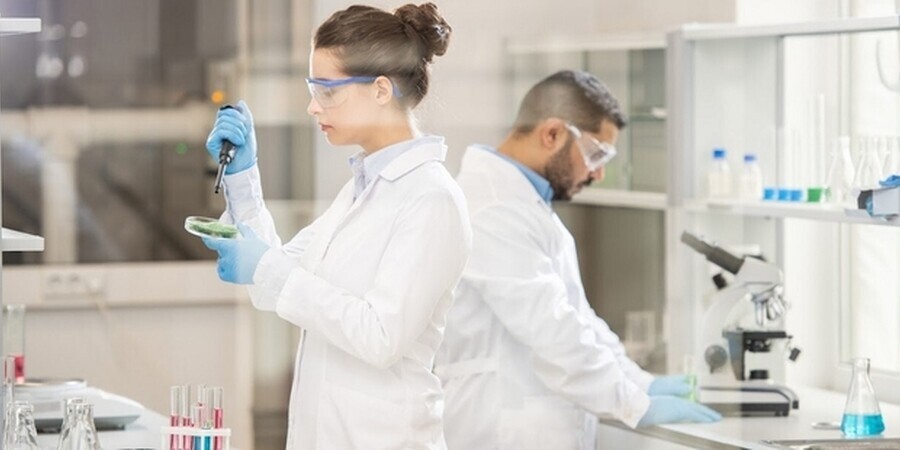Philadelphia, PA - Most people aren’t aware of the difference between compounding and regular pharmacies. A compounding pharmacy’s traditional role is to create drugs prescribed by doctors for particular patients with health needs that those available medications in regular pharmacies can’t address. Usually, a compounding pharmacy is made for individuals with allergic tendencies or for young patients who need a small dosage of a specific medication.
Unlike the usual pharmacies selling manufactured medications, a compounding chemist in charge will mix (compound) and pack the prescription you need in a compounding pharmacy (i.e., create it from ‘scratch’). This shows the difference between compound and traditional pharmacies regarding the drug development process.
Continue reading if you’re curious to know more about compounding pharmacies.
Types Of Compound Medications Created In A Compounding Pharmacy
Compounding pharmacies can develop two kinds of compounds: non-sterile and sterile. Some compounding pharmacies concentrate on one type of compounding, whereas others may provide services for both compounds.
1. Sterile Compounds
It can include dosage forms such as eye drops, infusions, and injections. Because of these, sterile compounds have a higher risk of infection or severe issues if contaminants enter the medication. Therefore, sterile compounds are created in a specialized environment with additional requirements to reduce the chance of these happening.
Its dosage forms can include:
- Irrigating solutions
- Infusions
- Inhalation solutions
- Ophthalmic (sprays, solutions, suspensions, ointments)
- IV admixtures
- Injections
- Eye drops
You may get the facts online if you want to know more about sterile compounding.
2. Non-sterile Compounds
This comes with a lower risk of infection. Their dosage forms can include:
- Suppositories
- Creams
- Capsules
- Oral mouthwashes
- Medicated lollipops
- Specialty deodorant sticks
Two Categories Of Compounding Pharmacies
Compounding pharmacies also have two general categories. These two categories come into play because of the legislation that was put into force by the United States government.
- 503A Compounding Pharmacies: These can compound medicines based on a healthcare provider’s prescription.
- 503B Compound Pharmacies: Besides what the first category can provide, they can compound sterile drugs in large numbers and sell them to healthcare locations, like hospitals or doctor’s offices. They are also referred to as ‘outsourcing facilities.’
What Is Involved In Compounding Medication?
- Compounded drugs can come in patches, mixtures, gels, rapid dissolve tablets, chewable tablets, and suppositories.
- The drug can be compounded free of problem-causing ingredients, such as certain preservatives, lactose, or alcohol that may result in allergic reactions.
- Pharmacists can compound the drugs in an animal-sourced capsule (e.g., gelatin) or a vegan (e.g., cellulose) capsule.
- The dosage compounded is specifically made for the patient.
Who Ensures Compounding Pharmacies Create Safe Drugs?
The Food and Drug Administration (FDA) is the traditional regulator of drug manufacturers, but states regulate pharmacies. Likewise, compounding pharmacies are regulated by three government agencies.
- FDA governs the ‘integrity of the medications’ and the active pharmaceutical ingredients from which they’re created.
- Drug Enforcement Administration oversees the compounding pharmacies’ handling of controlled substances.
- State Boards of Pharmacy ensure that pharmacies adhere to the state laws for pharmacy practice.
Moreover, the Pharmacy Compounding Accreditation Board (PCAB) provides its official seal of approval to compounding pharmacies that voluntarily pass rigid inspections and other requirements. Currently, there are about 180 compounding pharmacies with strict PCAB accreditation.
Why Is Compounding Pharmacy Different From A Traditional Pharmacy?
Several hospitals and community pharmacies provide compounding services. However, they usually don’t have similar specialized equipment or certifications as compounding pharmacies. Thus, the medicines that they create are less complex.
For instance, community pharmacists usually combine two or more creams to develop a compounded cream. They could also mix two or more oral liquid medicines. Hospital pharmacies also infuse sterile medications into the veins of an individual.
A compounding pharmacy can also accomplish how the community or hospital pharmacies compound medications. However, they can also develop more complicated ones than these.
When Do You Need A Compounding Pharmacy?
- the individual who needs a prescription is a child
- the person has allergies
- the medication is not available commercially
- the cocktail of pills that you need is possibly dangerous
- your medication is off-label
- the medication needs to be customized to attain your medical needs
Wrapping Up
A compounding pharmacy is a specialized type of pharmacy where they make medications that a doctor prescribes to help patients with health issues that commercially available drugs can’t treat.
It’s a lot different compared to community or hospital pharmacies as they can create more complex compounds that won’t be possible if a person relies on traditional pharmacies alone.
There are cases when a person needs a compounding pharmacy. These cases have been listed in this article. Overall, refer to your healthcare provider about compounding medications should you need one.
Share This Article on Social Media


